On May 5, the highly anticipated annual international ophthalmology event, ARVO, took place at the Washington State Convention Center in Seattle. Over 10,000 ophthalmologists and scholars from more than 70 countries gathered for this prestigious ophthalmology and vision science conference.
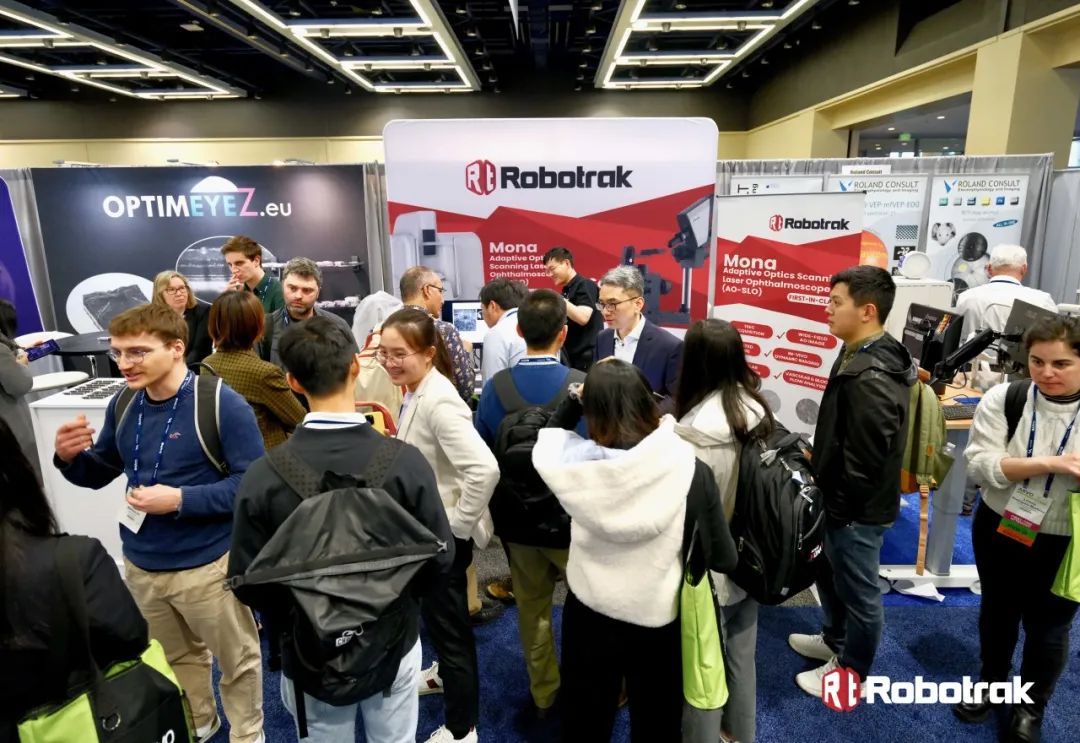
Robotrak Booth: 1244
Nanjing Robotrak Technologies Co., Ltd. made a stunning appearance at the event, showcasing the world’s first commercial AO-SLO Adaptive Optics Retinal Imaging System (Mona) and the small animal multimodal ophthalmic imaging system (Saris), garnering significant attention. A steady stream of attendees experienced the cell-level imaging of the human eye, leading to a packed booth and high interest in Robotrak’s innovative products.
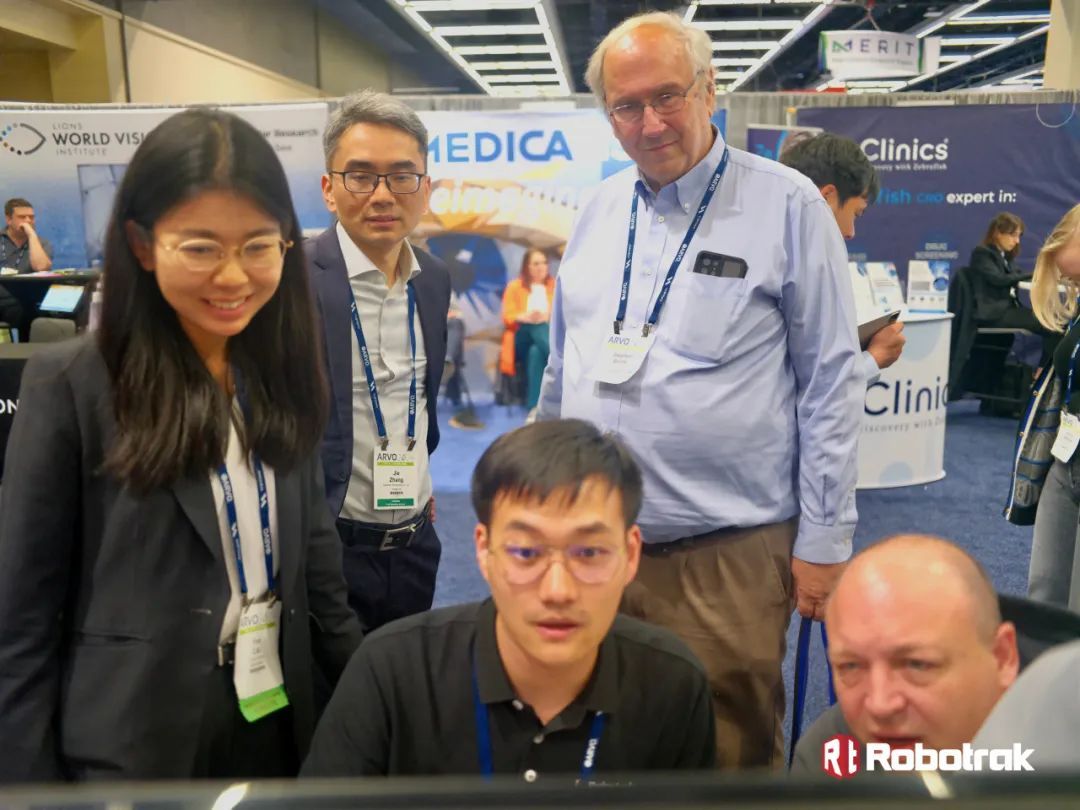
Indiana University’s Professor Stephen J. Burns Praises Mona’s Cellular-Level Retinal Imaging
The 2024 Rank Prize, often referred to as the "Nobel Prize" of optoelectronics, was awarded to researchers in Adaptive Optics (AO) this year in recognition of their outstanding contributions to the field. All three winners of the 2024 Rank Prize visited Robotrak’s booth. As global leaders in AO, they highly praised the Mona system, acknowledging Robotrak’s efforts in commercializing AO technology.
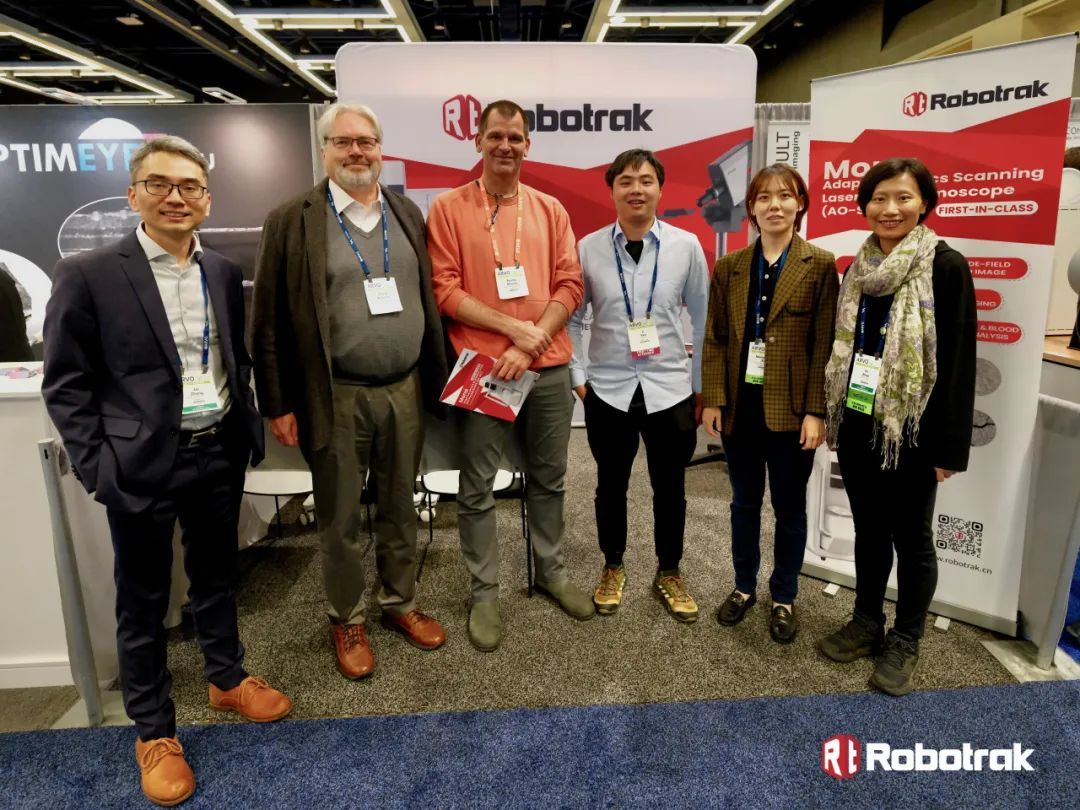
Second from the left: Professor David R. Williams, National Academy of Sciences member and inventor of AO in ophthalmology, University of Rochester. Third from the left: Professor Austin J. Roorda, inventor of AOSLO, University of California, Berkeley.
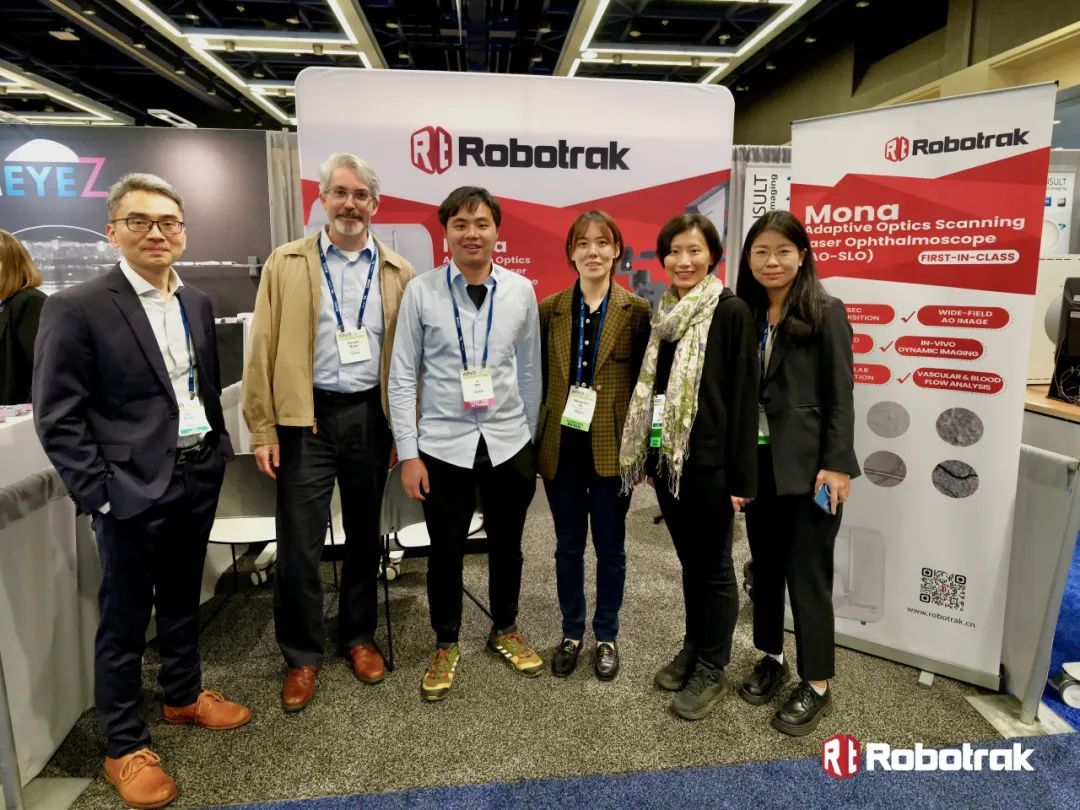
Second from the left: Professor Donald T. Miller, inventor of AOOCT, Indiana University
Professor Ricky Wang, an internationally renowned OCT expert and tenured professor of ophthalmology and biomedical engineering at the University of Washington, also expressed great interest in the development of Chinese-made ophthalmic devices. After experiencing Mona’s cellular-level imaging capabilities, he praised the system, emphasizing the significant value of Mona's data for advancing eye health research.
In addition to Mona, Robotrak also introduced the Saris small animal multimodal ophthalmic imaging system at the event. This groundbreaking Chinese-developed research device weighs only 800g and integrates OCT, OCTA, FFA, and SLO functions. It can image both the anterior and posterior segments of small animal eyes, making it an invaluable tool for scientific research.
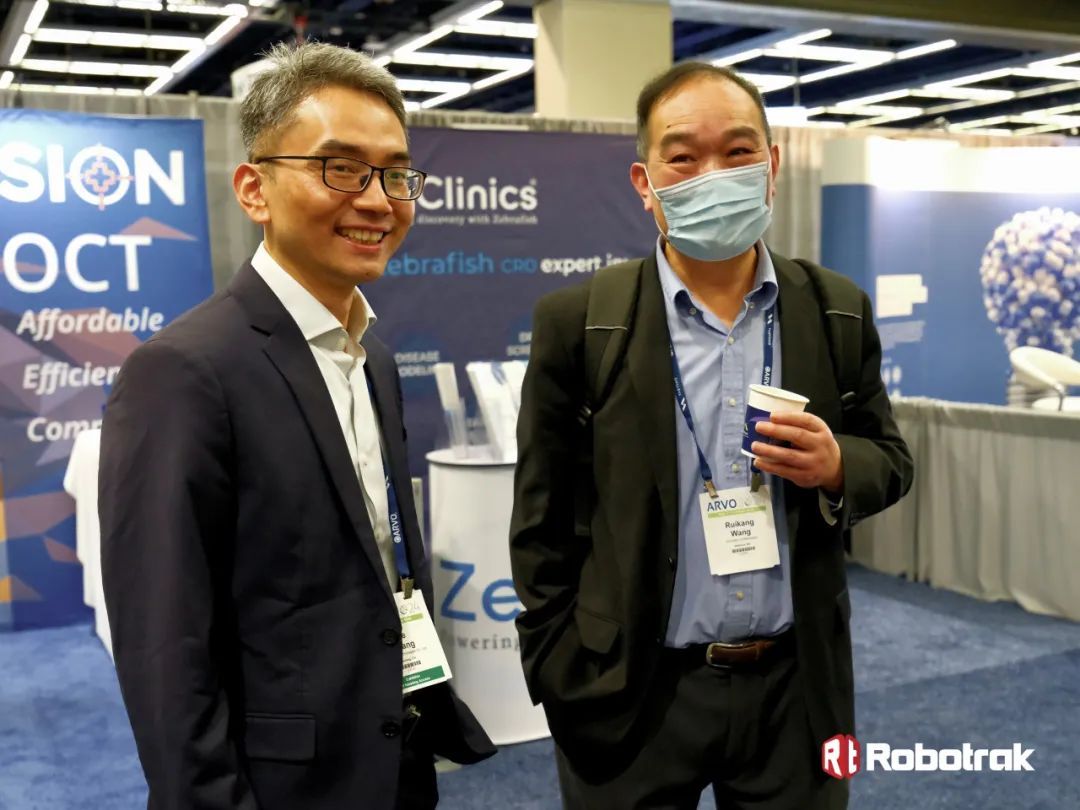
Professor Ricky Wang of the University of Washington Visits the Booth
Professor Kate Grieve, Director of the Paris Eye Imaging Center, also visited the booth to learn more about Robotrak's innovative ophthalmic products. A specialist in AO, Professor Grieve won the 2022 Jean Jerphagnon Award, which promotes innovation in optical technology and recognizes researchers who successfully translate cutting-edge research into practical applications. Combining advanced academic research with industrial design to achieve commercialization has always been Robotrak’s goal.
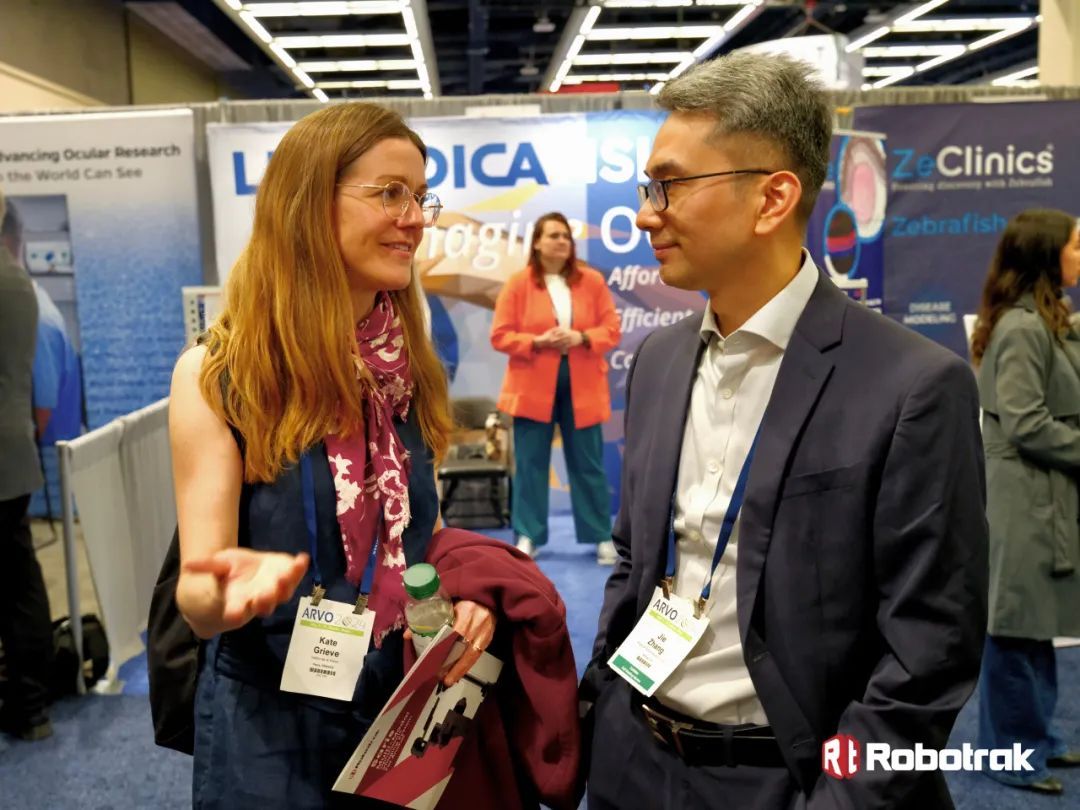
Professor Kate Grieve, Director of the Paris Eye Imaging Center, Visits the Booth
On the first day of ARVO, Robotrak's booth attracted experts and scholars from around the world, sparking deep discussions with renowned ophthalmology professionals. As a pioneering Chinese ophthalmic innovation company striving for first-in-class breakthroughs, Robotrak deeply appreciates the global anticipation for its innovative products. This motivates us to continue exploring and innovating, positioning Robotrak as a new benchmark for cutting-edge Chinese ophthalmic equipment on the global stage.
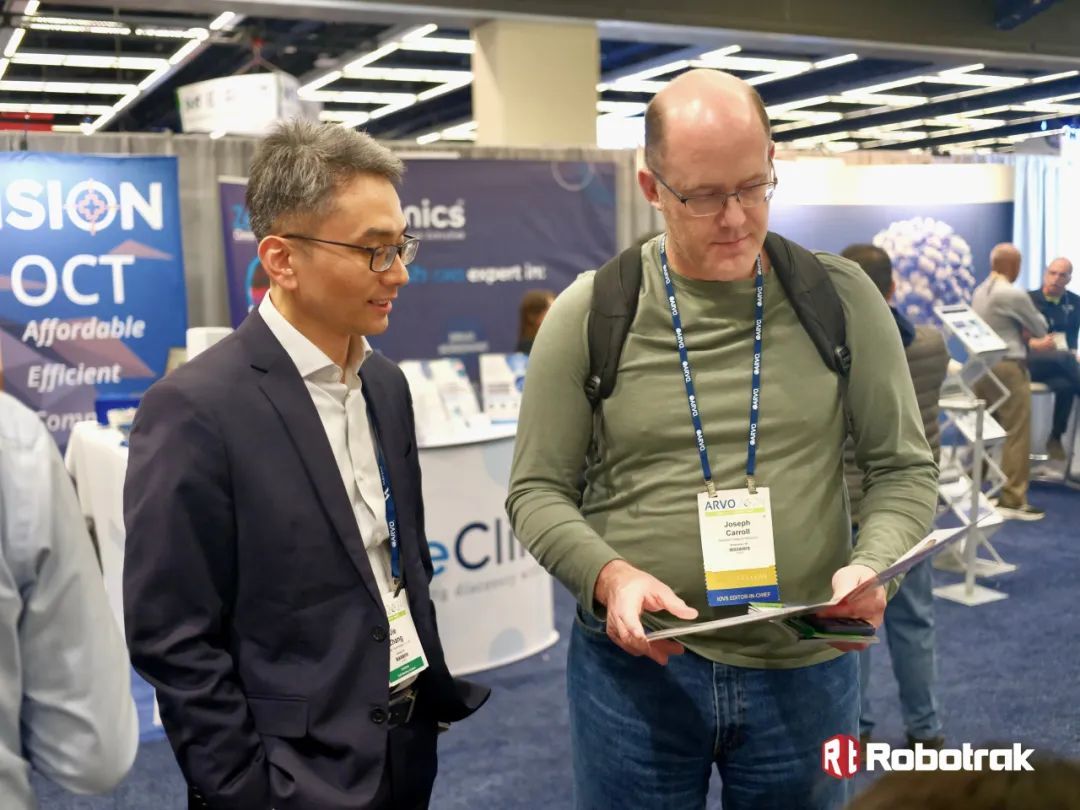
Professor Joseph Carroll, Editor-in-Chief of IOVS and Medical College of Wisconsin, visits the booth
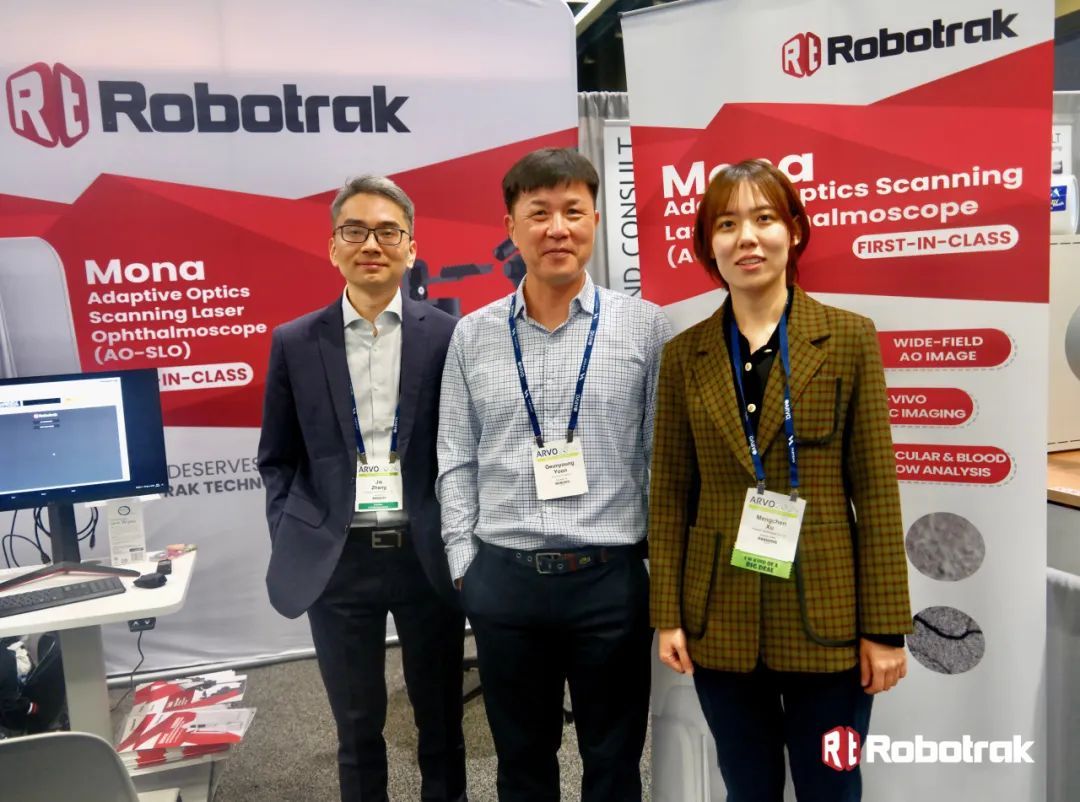
Professor Geunyoung Yoon, Chair of the University of Houston College of Optometry, experiences Mona’s cellular-level imaging
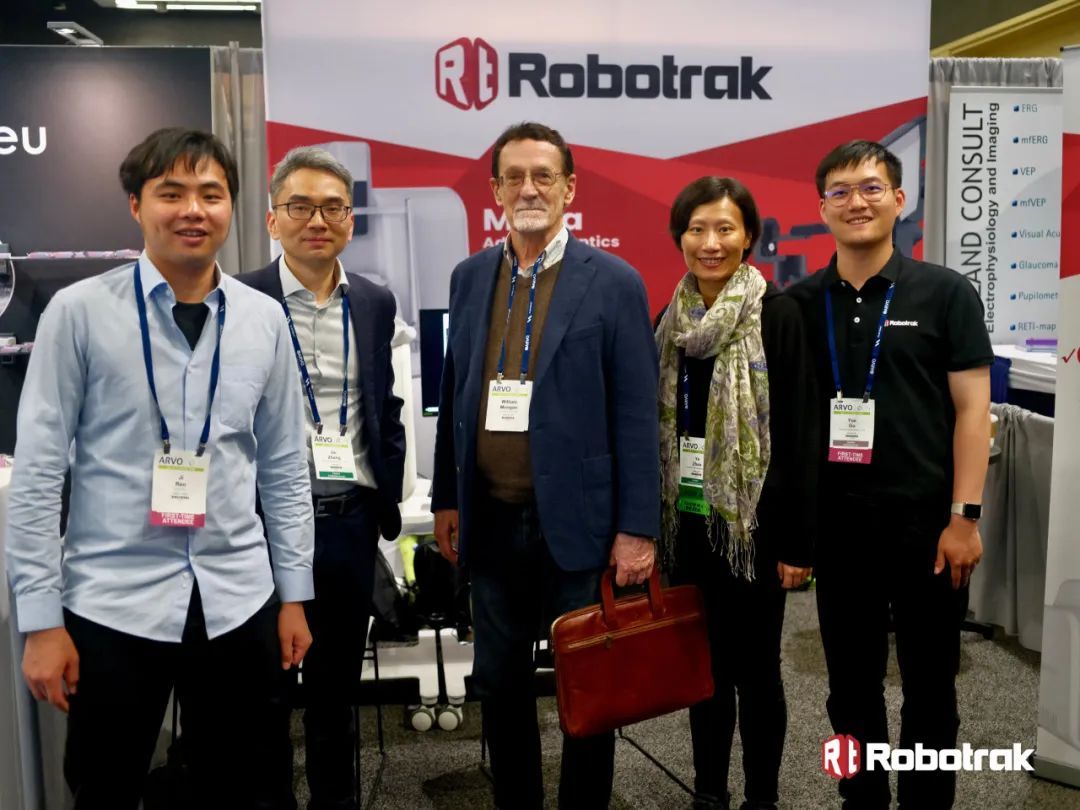
Professor William H. Merigan, University of Rochester, visits the booth
From May 6 to 9, Robotrak will continue to welcome ophthalmologists and scholars at booth 1244 in the Seattle Convention Center. Additionally, we will host several cutting-edge ophthalmology presentations at the main conference hall. We sincerely invite attendees to join us in discussing the latest advancements and achievements in ophthalmology and vision science, fostering a leap forward in the field!
Robotrak remains committed to its mission of “rooted in China, with a global outlook,” actively expanding into international markets and promoting the clinical application of cutting-edge technologies such as AO worldwide. Looking ahead, Robotrak will continue to collaborate with universities, hospitals, and research institutions domestically and abroad, driving clinical applications of AO and other advanced ophthalmic technologies. Simultaneously, the company is pursuing FDA and CE certifications to provide industry-leading solutions for global eye health, bringing our vision of “a clearer world for everyone” to life across the globe!
